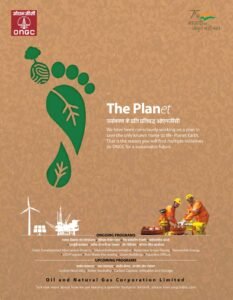CSI White Paper Calls on COP30 to Move Beyond Acknowledging Vulnerability to Champion Financing for Resilience
 10th November 2025: The Climate and Sustainability Initiative (CSI) announced the release of its new White Paper, “Bridging Global Agendas and Local Realities: Reflections on the COP30 Agenda”. The publication provides a critical analysis of the climate adaptation finance crisis and offers actionable pathways to mobilise capital ahead of COP 30 in Belém, Brazil.
10th November 2025: The Climate and Sustainability Initiative (CSI) announced the release of its new White Paper, “Bridging Global Agendas and Local Realities: Reflections on the COP30 Agenda”. The publication provides a critical analysis of the climate adaptation finance crisis and offers actionable pathways to mobilise capital ahead of COP 30 in Belém, Brazil.
As the world focuses on COP 30, which is envisioned as the ‘Implementation COP’, the paper stresses the urgent need to convert global climate commitments into “tangible, local action”. Despite growing international commitments, the White Paper highlights that climate adaptation finance remains underfunded, fragmented, and inequitable.
The findings underscore a severe global funding gap, arguing that current financing for adaptation covers less than 10% of the estimated USD 310–365 billion annual financing. It highlights a persistent financial imbalance between mitigation and adaptation, with the latter disproportionately garnering lower support. Progress on adaptation finance has also slowed, declining to around US$26 billion in 2023. Even if the Glasgow Climate Pact goal of doubling adaptation finance were achieved, it would only narrow the overall gap by about 5%, underscoring the scale of unmet needs.
The paper identifies several key challenges that must be addressed to accelerate climate adaptation financing. The lack of standardised metrics remains a major barrier—there is still no universally accepted adaptation taxonomy or agreed set of indicators to measure adaptation progress and systemic risks. The paper emphasises that reaching a consensus on a core set of qualitative and quantitative indicators for the Global Goal on Adaptation (GGA) will be one of the most critical challenges facing COP30.
The White Paper contends that bridging global ambition with local implementation requires a systems approach that aligns the understanding of adaptation and Nature-based Solutions (NbS) needs with localised financial requirements.
CSI thus endorses the evidence-based BRIDGE Framework as a replicable pathway to mobilize domestic and international capital and bolster climate resilience. The framework consists of six key pillars designed to standardise the approach for making adaptation and NbS “investment-ready”:
- Baseline Mapping
- Realignment & Mainstreaming
- Institutional Finance Readiness
- Design financial solutions (e.g., blended finance)
- Governance Strengthening
- Empowerment of Local Community
The overarching call to action for COP 30 is to fundamentally shift global climate governance from merely acknowledging vulnerability to financing resilience. The White Paper calls for a realignment to enhance access to public and grant-based finance, as well as to integrate financing arrangements into national public financial management systems. The authors emphasise that successfully tackling climate impacts requires transformative action that connects adaptation necessities, ecosystem resilience, and equitable climate finance to foster inclusive, scalable, and transformative climate action.


















